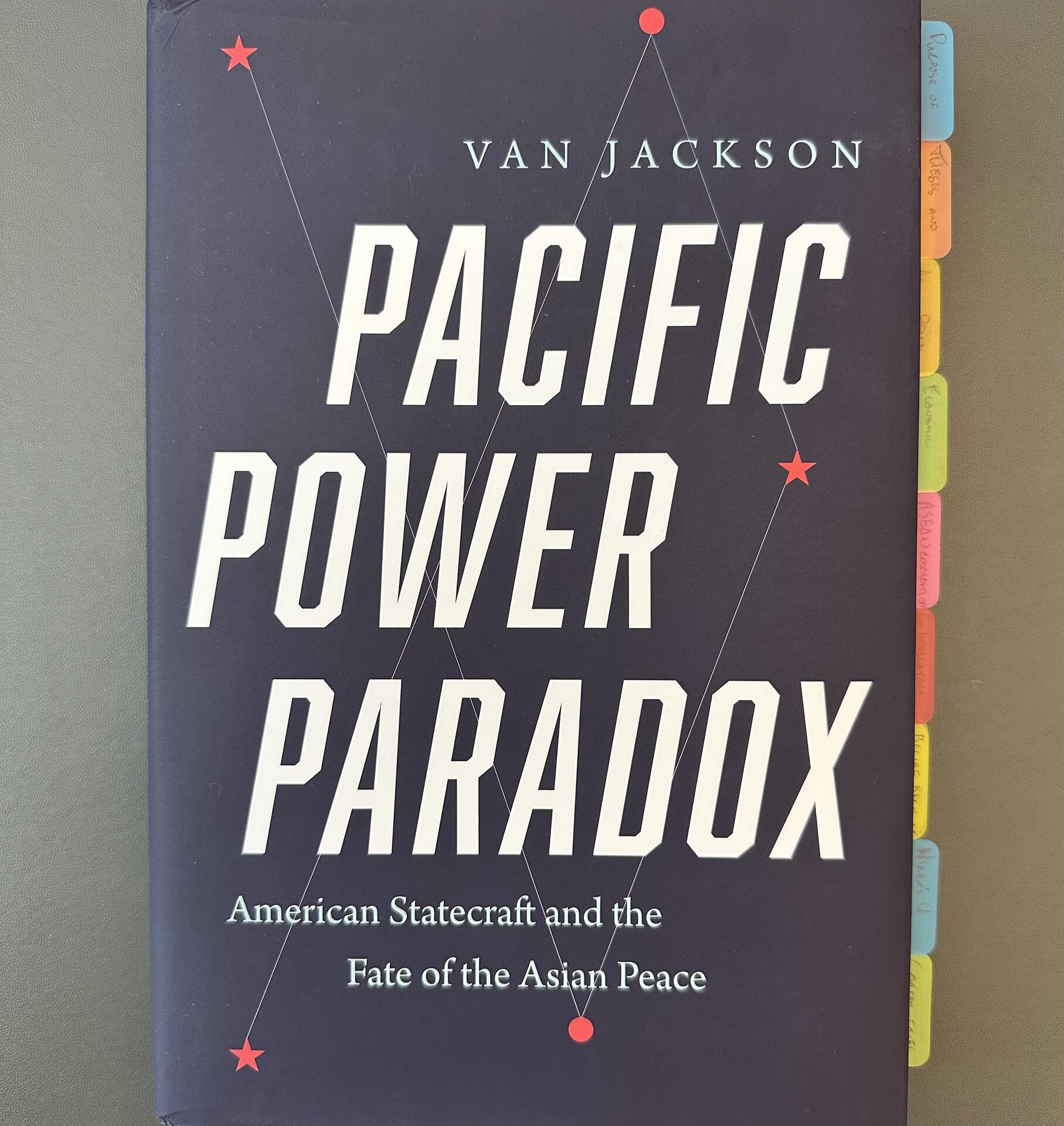steve on Nostr: “Pacific Power Paradox: American Statecraft and the Fate of the Asian Peace” by ...
“Pacific Power Paradox: American Statecraft and the Fate of the Asian Peace” by Van Jackson
⭐️⭐️
Jackson, a Pentagon bureaucrat turned burgeoning academic, wrote this book in response to the seemingly more agressive tone the Trump administration took in the Pacific. Seeking to understand what has the US role been in contributing to the “peace” throughout most of Asia since 1979, Jackson was himself surprised to find that America has been “an arsonist as much as it’s been a firefighter” for decades. He reveals that the US has switched between wearing 3 distinct “faces” since the Nixon years: the aloof hegemon, the vital bulwark, and the imperious superpower. While Jackson’s framework is agreeable, his analysis often crumbles under its own weight. He conveniently ignored the Indian sphere of influence and oftentimes hand-waves the sovereign diplomatic & economic interests of smaller states across the Pacific. The Pacific Power Paradox does not present any novel ideas worthy of implementation, but it’s themes do evoke useful conversation. For instance, Jackson’s naivety towards decentralized governmental decision-making is so glaring that it forces the reader to consider those matters in stark contrast to the author’s words. It’s best to frame this book as a stepping stone in one academic’s journey towards something actually insightful.
⭐️⭐️
Jackson, a Pentagon bureaucrat turned burgeoning academic, wrote this book in response to the seemingly more agressive tone the Trump administration took in the Pacific. Seeking to understand what has the US role been in contributing to the “peace” throughout most of Asia since 1979, Jackson was himself surprised to find that America has been “an arsonist as much as it’s been a firefighter” for decades. He reveals that the US has switched between wearing 3 distinct “faces” since the Nixon years: the aloof hegemon, the vital bulwark, and the imperious superpower. While Jackson’s framework is agreeable, his analysis often crumbles under its own weight. He conveniently ignored the Indian sphere of influence and oftentimes hand-waves the sovereign diplomatic & economic interests of smaller states across the Pacific. The Pacific Power Paradox does not present any novel ideas worthy of implementation, but it’s themes do evoke useful conversation. For instance, Jackson’s naivety towards decentralized governmental decision-making is so glaring that it forces the reader to consider those matters in stark contrast to the author’s words. It’s best to frame this book as a stepping stone in one academic’s journey towards something actually insightful.

